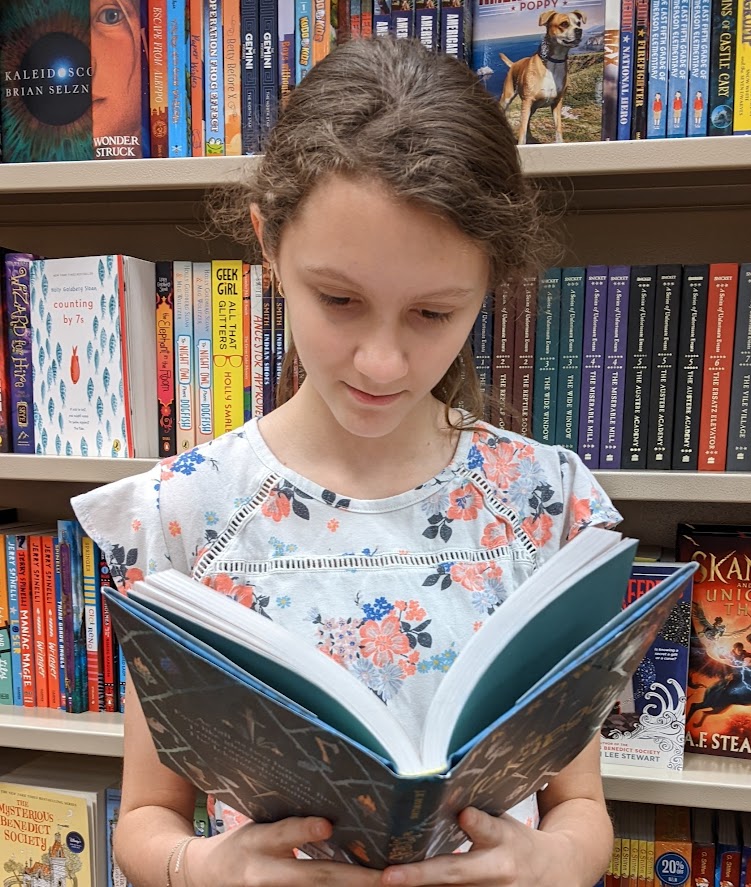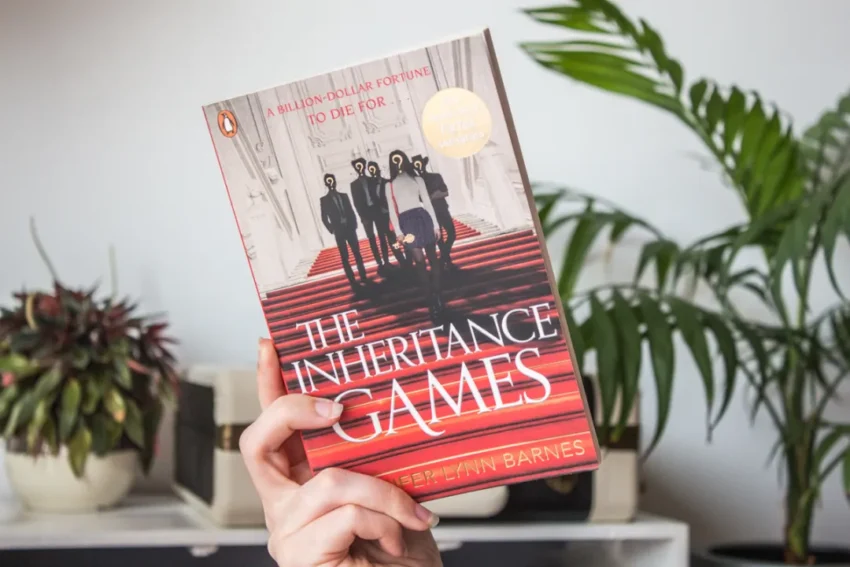No one likes spoilers, especially if that spoiler is to a really good mystery series or movie. But what if I told you there was a different kind of spoiler? It’s a non-plot related kind that writers can let into the very text of their stories. These kinds of spoilers can completely ruin a story, regardless of the genre. They can crop up in exposition, dialogue, or even a character’s backstory. And they can be hard to catch.
However, as slippery as these different kinds of spoilers are, I recently read a novel that didn’t have a single one. And it’s become one of my favorite novels of all time. In this article, I’ll be analyzing it to show you what these spoilers are as well as the secret to destroying them.
The Inheritance Games
Avery Grambs goes from rags to riches in less than twenty-four hours when an eccentric billionaire passes away and leaves all of his money to her. The only catch is that Avery has to move into his insanely large mansion and live with all of his severely disappointed, slightly ominous relatives, or else she doesn’t get the fortune. Meanwhile, the billionaire’s four grandsons, Nash, Grayson, Jameson and Xander, are determined to figure out why their loving grandfather would leave his entire fortune to a complete stranger. They quickly pick up on a few mysterious riddles hidden around the house and begin to solve the grand puzzle he left for them. Avery, eager to solve the mystery and beat all of the boys to it, begins working out the clues as well.
However, before she can get very far in this puzzling struggle for power, the oldest brother Nash, stops by to give have this conversation with her:
“‘Did Jameson tell you about the old man’s weekly riddles?’ Nash asked as we walked. ‘Sometimes, at the beginning of the game, the old man would lay out a collection of objects. A fishing hook, a price tag, a glass ballerina, a knife…”
‘Why are you telling me this?’ I [Avery] asked as his pace finally slowed to a near standstill. ‘Why tell me any of this?’ …
‘You might think you’re playing the game, darlin’, but that’s not how Jameson sees it.’ Nash’s voice was gentle enough, but for the words. ‘We aren’t normal. This place isn’t normal, and you’re not a player kid. You’re the glass ballerina–or the knife.’”
There are dozens of cryptic conversations like this scattered throughout the rest of the novel and that’s part of what makes it so grippingly addictive. The conversation above, and The Inheritance Games as a whole, was crafted perfectly free of ‘spoilers’. By spoilers here, I mean not letting the reader figure things out for themselves. The writer could’ve just had Nash come up to Avery and say: ‘You should give up because my family is dangerous and we’re using you as a means to reach an end’ but then the scene wouldn’t be as powerful that way. Writing dialogue that always points out the obvious, that always states exactly what the characters are feeling, creates characters that are constantly spouting ‘spoilers’. But this is just lazy writing.
“Give them 2+2…”
To be a good writer, you must master the 2+2 rule, a concept invented by the co-writer of Finding Nemo, Bob Peterson.
When you ask an older sibling or parent for help on a tricky math problem, it’s not as satisfying if they just tell you the answer, is it? You might need assistance on the puzzle, but you ultimately want to figure it out for yourself so you have a better understanding of the problem. It is the same with stories. As an author, you don’t want to be a lazy older sibling who just gives their reader the answer. As Mr. Peterson says, “Make the audience put things together. Don’t give them four; give them two plus two.” Give your reader just enough to figure out what’s happening, no more and no less than that.
With dialogue, it’s very easy to accidentally force feed spoilers to your readers. You may be tempted to have your characters say obvious things like: “I’m in love with you” or “I don’t want to talk to you right now” but try to avoid phrases like that. People rarely say exactly what’s on their mind when talking to others. To understand another person, you often have to study the things they don’t say; how they avoid a certain topic, the awkward pauses they take, or their body language.
In the snippet above, you can tell that Nash is carefully thinking through what he’s about to say by the way he slows his pace when Avery asks him a question. Later, instead of saying ‘his words were harsh’ the author says ‘Nash’s voice was gentle enough, except for the words’ — once again making the reader think about the real meaning behind each sentence. Not to mention, there are very few pauses throughout the whole conversation, showing that Nash walked into this interaction with a purpose planned out ahead of time. This kind of subtlety adds so much interest and impact to the dialogue, and it makes the book impossible to put down. So give your reader just enough to figure out what’s happening. Use body language, expressions, even little silences in your dialogue to keep the reader hooked to your story. The 2 + 2 rule is genius, and The Inheritance Games absolutely masters it.



Let us know in the comments section: Have you heard of the 2 + 2 rule before? Where have you seen it used? And how was this article? Too sour? Too sweet? Just right?


Hello, I’m Sophia! I’m a child of God and I (if you couldn’t tell already) love to write! I’m also a total theater kid and strong dessert (specifically cupcake) enthusiast. For as long as I can remember, I’ve enjoyed both reading and making my own stories. I’m so glad I get to share with you what I’ve learned from some of my favorite (or sometimes least favorite) stories on this blog.


WOAH!!!!!!!!!!!! That’s AWESOME! I’ve never heard of that before!
can you do divergent
Well, Brooklyn, I’ve never read Divergent, though I have heard a lot about it. I’m not sure I’ll get to write an article on it any time soon, but I do know a YouTuber who did a case study on the Divergent movie, similar to the way we do ours. Here’s the link to that if you want to see it: https://www.youtube.com/watch?v=UHByWwzcj04
Thanks for putting in a request! (: